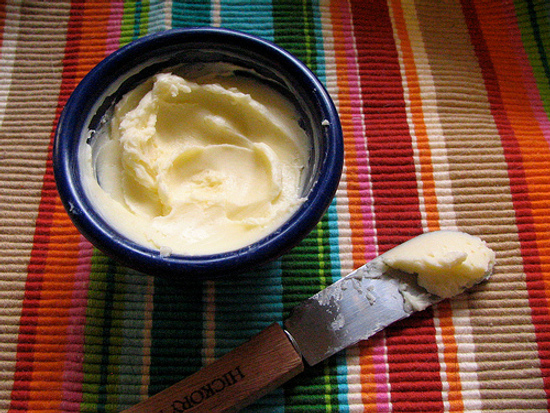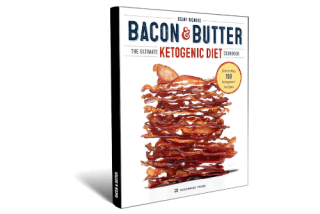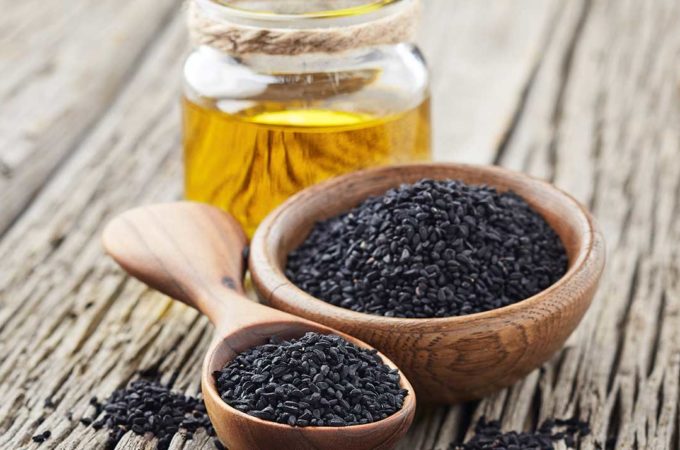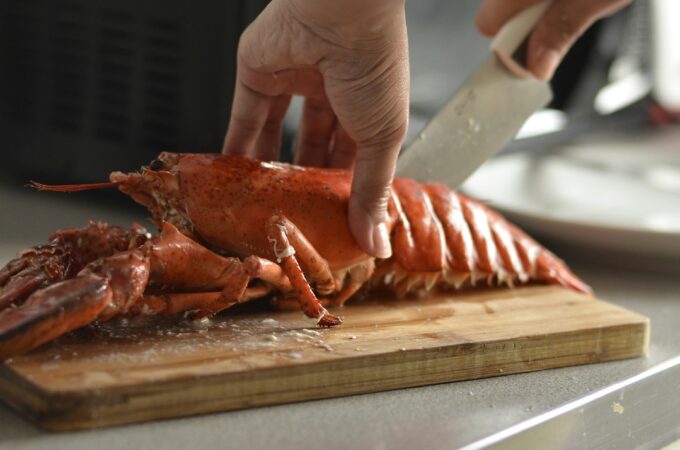
For decades, the USDA food pyramid has been telling us to eat less fat. When they launched their campaign, only 14% of Americans were obese. Today, that number’s at more than 30%, with another 30% of the population being classified as “overweight.”
So what’s wrong? Did the public fail to get the message? Are we all secretly pigging out on high fat foods? Did we all suddenly turn sedentary?
By the late 1990s, more than 90% of American consumers reported eating low-fat products, and roughly two-thirds of us believed “a need exists for food ingredients that can replace the fat in food products.” By all appearances, we embraced the low-fat message with open arms. Yet we still gained weight.
A funny thing happens when you cut fat out of the diet. You want to replace it with something.
Recently, Ode Magazine ran a cover story called “Fat Is Where It’s At,” highlighting the changing tide as scientists have started to recommend higher fat diets. From the article:
So given the blanket condemnation of fat, what did we eat instead? If we cut fat out of our diets, we have to get calories from somewhere. When food companies offer reduced-fat versions of cookies, salad dressings and sauces, sugar and carbohydrates generally make up the difference. When we consciously reduce the fat in our diets, we don’t typically eat fewer calories; we eat more rice and pasta, according to a survey by the U.S. Department of Agriculture. And low-fat products have their own problems. “If you reduce the fat, you have to replace it with something,” says Samuel Klein, a professor of medicine and nutrition in the medical school at Washington University in St. Louis, Missouri. “So it’s sugar.” It’s true: Either for taste, or to replace fat’s richness and moistness, the food industry began using sugar.\r\n\r\nBut as researchers studied fat and weight, they learned more about the effects of sugar, which as it turns out may inspire more weight gain than fat does. When we eat sugar—or refined carbohydrates, which break down into sugar—the body produces insulin to transport the sugar to the muscles and organs that burn it as fuel. Insulin, though, also regulates fat metabolism, and when insulin levels are high, the body stores fat rather than burning it. The issues and consequences of producing too much insulin are still open to debate, but many researchers believe that replacing fats with sugars and carbohydrates has the potential to wreak havoc on your metabolism. And ironically, even sugar substitutes, like aspartame, the sweetener in NutraSweet and Equal, have been linked to weight gain. Scientists aren’t sure why, but they seem to encourage people to eat more, or disrupt energy expenditures.
So now the scientific community is starting to backtrack. They’re finally starting to own up to the fact that not all fat is bad.
Check out these prime quotations from the Ode article:
–”Regularly described as the nutritional equivalent of cigarettes, fat has been the target of public-service campaigns and municipal bans aimed at keeping us slender and healthy. But a growing body of international research suggests our obsessive fear of fat may be misplaced. A high-fat diet won’t necessarily make us sick or fat; a low-fat diet may not make us healthy or slim.“
–”Even the American Heart Association (AHA), a leader in the campaign against dietary fat, recently revised its nutritional guidelines, increasing the daily recommendations for fat. “The science just wasn’t there,” acknowledges Robert Eckel, president of the AHA and a professor of endocrinology, metabolism and diabetes at the University of Colorado Health Sciences Center.”
Personally, I love fat. It makes everything taste better and keeps me full. In order to get the proper balance of fats necessary for a healthy liver & heart (an Omega 6 to Omega 3 fatty acid ratio of 4:1, for starters), I try to get my fat from traditional sources. This includes butter from grass-fed cows, tallow and lard from grass-fed, wild, foraged animals, and quality olive and coconut oils. I drink full-fat milk raw from grass-fed cows, don’t shy away from cream or sour cream, and enjoy bacon grease.
Roughly 55-65% of my daily calories come from these fats, and I’ve never been healthier. I’ve lost weight, eliminated mood swings, and said goodbye to fatigue.
For recipes and practical instructions for eating this way (high-fat, low-carb), I highly recommend Bacon & Butter — the Ultimate Ketogenic Diet Cookbook

With this New York Times bestselling book, you’ll begin dropping pounds immediately — and learn how to keep them off for good — by following a low-carb, high-fat ketogenic diet packed with tasty, wholesome meals that you’ll love.
It’s the simplest way to get started, and at the moment, the printed version of this cookbook is 100% free to Food Renegade readers. You just pay shipping & handling.
Still Not Convinced?
- Get the real scoop on Healthy Fats
- Read the definitive answer on the connection between saturated fat and heart disease
- Watch this video on Good Fats & Bad Fats
- Find out how switching to good fats & eliminating sugar REVERSED fatty liver disease in this man in just ONE short month!
I owe Fight Back Fridays participant Charles Welling a hardy Thank You for the heads up to the Ode Magazine article.
(photo by litlnemo)
 |
















I’m becoming a fan of fat myself. I haven’t always been, I was on an ELF (extreme low-fat) diet in the 1980s, even counting grams of fat that naturally occur in vegetables and grains! I was the child who would sneak into the kitchen at night and slice off a chunk of butter to eat plain. I still lick the wrapper when I unwrap a quarter for the butter bell. I find when I “snitch” a little chunk of butter while I’m making dinner that I eat less, but feel just as full, and don’t get hungry later. I’m all for that!
Local Nourishment
I’m a big fan of full fat dairy but I just can’t get on the drinking whole milk bandwagon. It feels so thick in my mouth like I’m trying to drink butter. I usually get 1% for drinking.
Nice post. Good to see someone shedding some spotlight on it – I was glad to see that Ode magazine article get published last week – maybe we’re finally seeing the START of the tides being changed? Or at least publicly acknowledged – that’d be nice. Here’s to hoping!
Local Nourishment, Hah, I tend to “sample” the cold butter plain on occasion too – but then I use the rest in my cooking. 🙂
Ryan Robitaille
I’ll second that. Removing carbs from my diet I’ve lost more than 20 pounds, my cholesterol and triglycerides are vastly improved, and my blood pressure is down. Exatly what Robert Atkins said would happen, and we know what the American Medical Association did to him. The government tilting our diet toward carbohydrates was exactly the wrong prescription. People need to know that healthy fats and proteins are key to good nutrition. However, I’m not drinking milk anymore because of the lactose in it. I turn the milk we get delivered from our dairy into yogurt, with a long fermentation to digest the lactose.
Ed Bruske
love me some butter too. i have no idea what percentage of my caloric intake is fat but it seems that most delicious foods have a lot of fat. i was just looking at the parm. reggiano i bought and saw that per ounce it has 100 calories, 70 of which come from fat and 9 grams of protein! nice. who doesn’t like butter with their eggs and toast? also my husband and i recently discovered sheeps milk yogurt which is really yummy, and higher in fat and protien then cow milk yogurt.
emily
Emily — If you’re really curious about the percent of your diet going to fats, you can use the calculator at FitDay.com to find out. If you cook most of your own food, you’ll have to enter every single ingredient in a dish to get it to calculate correctly, but the end result is fun!
Ed — I just love your story! I remember when you first announced you were switching to this diet, and I knew the results would be encouraging. But, really, you’ve got to feel awesome right about now.
Ryan & Local Nourishment — My two year old LOVES cold butter straight. I have no qualms feeding it to him. Generally, the more fat he eats (he loves cold butter & sour cream), the happier he is. There are no terrible twos in our house, and I wonder how much of that has to do with making sure my little ones get lots of healthy fats, almost no sugar, & good sleep.
Carrie — I used to be like you. Have you tried raw full-fat milk? It’s texture is quite different than pasteurized whole milk, and you may discover that you like it. If you have and you don’t, I would suggest giving up milk altogether. Read the ingredients label on your low-fat milk. It’s scary! When they remove the fat, they add back in non-fat dry milk or concentrated milk solids to give it a creamier texture. By necessity (because of how they’re made), these dry milk solids are high in oxidized cholesterol (the stuff that damages your heart and clogs your arteries) and free glutamic acids (AKA “MSG”).
OH MY WORD! I love fat! I seriously think butter is my favorite food. I’m allergic to milk AND lactose intolerant – BUT I find plenty of ways to get dairy in with cheeses, sour cream, etc. I shoot for about 50 to 60% of my calories from fat daily – but keeping in mind that I’m a weight loss surgery (www.duodenalswitch.com) post-op with a significant fat malabsorption quotient going on. I actually work hard to make sure I’ve gotten enough in my diet each day! My combined cholesterol is 102, my triglycerides 56. Yeah – pretty much healthier than I’ve ever been in my life!
Saw a great article recently that was touting fat, as well – why? because it makes you feel full longer – more saity, less grazing! Go figure!
dina
This is a great post!
When I cut out most refined sugars last year (only as rare treats do I use organic, fair trade, “less than refined sugars), and 98% processed foods (some sneak in very very occasionally), I lost 22 pounds in six months. I was amazed. It took three weeks for me to get over my sugar cravings, but, when I did, I also noticed I had more energy and had already dropped a couple pounds!
As I read blogs like yours, and certain books, I too began to fear fat less. I now use coconut oil (ordered through a link you provided) and locally produced olive oil, real butter, full-fat organic yogurt and so on. YUM. And the weight has stayed off!
When people ask how I lost weight and I try to explain it to them and refer them to your blog, similar blogs, and certain books, they look at me cross-eyed and again ask what diet I was “really” on. I don’t get why this concept seems so hard to so many people!
I’m not much into eating butter plain, but licking the mayo off a spoon, well that’s a different story! Yum.
Since I was never really into low-fat, it didn’t take much convincing. I switched over to full fat milk for my kids and gave up the margarine. I certainly didn’t hear any complaints! I feel so bad for my father. He’s on statins and my mom “makes” him drink skim. For his birthday, he asked for a gallon of whole milk. How sad is that?
Motherhen68
Thank you soooo much. A friend had just been asking me why I thought a higher fat diet was better and I was trying to find some articles which outlined it and this is perfect.
Great article Kristen! I love fat too, and it’s more clear than ever how essential it is to our health.
I was surprised to see this:
“The issues and consequences of producing too much insulin are still open to debate”
Is there really any evidence suggesting that excessive insulin production is not a problem?
Vin – NaturalBias
Vin — I don’t think there is. Excessive insulin production is the bane of this generation and the leading cause of diabetes, obesity, and many other chronic illnesses.
KP — Glad to help out!
Motherhen68 — Oh that is tragic!
Natalie — Congratulations on your reclaimed health. Hopefully your example will be convincing enough for the folks around you to be inspired to change.
Dina — That is definitely a bonus when it comes to eating fat. In the book Eat Fat, Lose Fat, Mary Enig suggests consuming a tablespoon of coconut oil 20 minutes before every meal. One of the many benefits this confers is just what you described — a less urgent need to eat (particularly high carb foods).
Great post! I too am a convert to the higher fat, lower carb lifestyle. For years I followed low fat and very low fat vegan, near vegan, and macrobiotic diets. My health kept getting worse. Reading Weston Price’s work and adopting a higher fat diet based on meat, eggs, vegetables, fruits, and good fats has been instrumental in turning my health around. Over time my practically paleo diet has evolved to be higher in fat and lower in carbs. I’m amazed and how much longer I can go between meals w/out experiencing the blood sugar blues and how much better my digestion and elimination are. I’ve enjoyed vegetables for years and I’m impressed with how much better they taste with liberal amounts of friendly fats and oils.
Here’s to good fats!
Chef Rachel
I love fats too!
I can’t believe how much more balanced I feel when eating low carb. Things that have improved are digestion, fat loss, energy, binging, sugar cravings. I feel like a new person.
Catherine
Science has reversed or radically altered itself many many times in all areas of research and study. Seems especially so in the science of
human health. Time and again we hear what is bad for us is now good and vise-versa. Same thing with a number of environmental causes, astronomy,
physics and so forth.
Guess we need to swallow a little helping of discernment whenever we hear the words; “the latest research shows…” !
munch munch !
Another good thing to remember- dont rush our body into losing weight. I ut read this great book called The Power of Small and realized I do much better when I stop thinking about the number of pounds I want to lose and give myself a few quiet moments to choose my meals carefully.
Fat Is Where It’s At. She is pretty convincing. It would be a whole new world to eat full fat and real sugar, right? http://ow.ly/gNw0
This comment was originally posted on Twitter
Hi, KristenM.
If you don’t mind my asking, do you know what your blood type is? Based on the articles that I have read, it sounds like your have experienced great benefits from consuming full fat, raw dairy products.
I have just found a source of 100% grass-fed, organic milk. Although I trust its quality, I am not sure whether or not it agrees with me, as the cream seems to increase my heartrate (a potential sign of an allergic reaction) and the milk sometimes makes my skin feel itchy. According to a few dynamic blood analysts that I have consulted with, Eat[ing] Right 4 Your [Blood] Type–information about which has been disseminated by Dr D’Adamo–really does seem to heal the blood. Based on your favourable experiences with raw dairy products, I am curoius as to whether you are a blood type that is reputed to handle dairy products well (B or AB) or one that is reputed not to (O or A). I am not completely sold on the merits of blood type dieting, but have heard enough compelling testimonials to make me wonder about its virtues.
Thank you for your feedback. (If anyone else has any feedback, I would be delighted to hear it, too.)
~Kristin ;^)
Kristin
I am an 0+ and love milk and do have not problems with it, although I did have a problem with cows milk as an infant. I did not have mother’s milk and reacted poorly to cows milk and formula. I am told I might have died until my family found a source of raw goats milk. The Weston Price folk maintain there is a great deal of difference between raw milk and pasturized milk. They say that the heating destroys enzymes that help with digestion. I have lately begun drinking raw milk, and enjoy it. Also, if you have not been drinking milk you may need to build up the bacteria that help you digest it–the lacto-bacteria. You can get it from old-fashioned unpasturized sour-krout. I now eat it as a condiment with most meals.
Kristen, Thanks for the post. It’s easily observed e. g. in yogurt- they remove the fat and add sugar for taste.
Kristin (last comment), You might look into the “Metabolic Typing Diet”. I provide a questionnaire on my website after signing up for your metabolic type and what foods fit best to your type.
.-= PerryP@How to lose weight´s last blog post …Never Feel Full- What You Can Do When You Never Feel Full =-.
Good luck finding yogurt that contains REAL sugar and not high fructose corn syrup. HFCS must another culprit for obesity since almost everything you buy today uses that instead of real sugar.
I think people get fat eating food products that are pre-made and contain the “WTF is that?” ingredients. Healthy is, eat pretty much whatever you want (within reason), as long as you cook or bake it yourself at home from pure ingredients (sugar, butter, salt, flour, olive oil, etc.). It has been that way since the beginning of life itself when obesity was never a problem. Lastly, it amazes me that people will believe everything they hear on tv without questioning whether it true or not. One day, eggs are bad for you, then they’re not… b.s.
what do you think about this? that cod liver oil is no longer recommended as it messes up vitamin a and d?
http://articles.mercola.com/sites/articles/archive/2008/12/23/important-cod-liver-oil-update.aspx